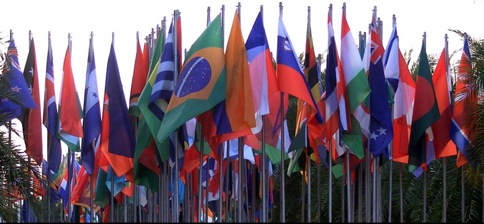In a unanimous decision of 194 countries, the United Nation’s Convention on Biological Diversity (CBD) has formally urged nation states to regulate synthetic biology (synbio). The landmark decision follows ten days of hard-fought negotiations between developing countries and a small group of wealthy biotech-friendly economies. Until now, synthetic organisms have been developed and commercialised without international regulations and increasing numbers of synbio products are making their way to market. The CBD’s decision is regarded as a “starting signal” for governments to begin establishing formal oversight for this exploding and controversial field.
Many of the diplomats negotiating at the UN Convention had instructions to establish a moratorium on the release of synthetically modified organisms. However, they faced stiff opposition from a small group of wealthy countries with strong biotech industries, particularly Brazil, Canada, New Zealand, Australia and the UK.
Global South representatives raised concerns that synbio products intended to replace agricultural commodities could devastate their economies and degrade biodiversity. Many delegates were also concerned that synthetically modified organisms could create biosafety risks – e.g. the possibility of synthetic algae escaping into waterways, producing a solar-powered oil spill.
A network of international organisations including Friends of the Earth, ETC Group, Econexus and the Federation of German Scientists has been closely monitoring the negotiations and providing input for over 4 years.
What’s in the CBD decision?
The CBD decision urges all member countries to:
- Follow a precautionary approach to synthetic biology.
- Set up systems to regulate the environmental release of any synthetic biology organisms or products. These regulations must ensure that activities in one country cannot harm the environment of another. (Article 3 of the CBD)
- Ensure that no synthetic biology organisms are released for field trials without a process of formal prior risk assessment.
- Submit synthetic biology organisms, components and products to scientific assessments that consider risks to conservation and sustainable use of biodiversity as well as human health, food security and socio-economic considerations.
- Encourage research funds to assess the safety of synthetic biology as well the socio-economic impacts of the technology.
- Support developing countries to develop their capacity to assess synthetic biology.
The decision also:
- Establishes an expert group to develop a definition of synthetic biology and identify whether existing governance arrangements are adequate.
- Invites other UN bodies to consider the issue of synthetic biology as it relates to their mandates.


